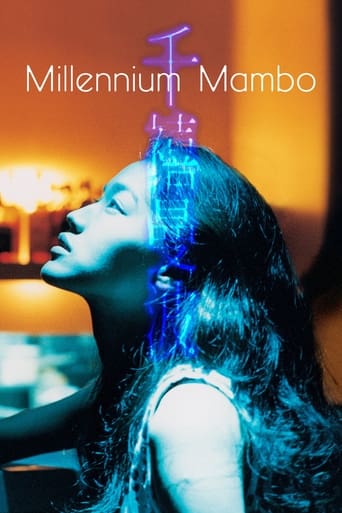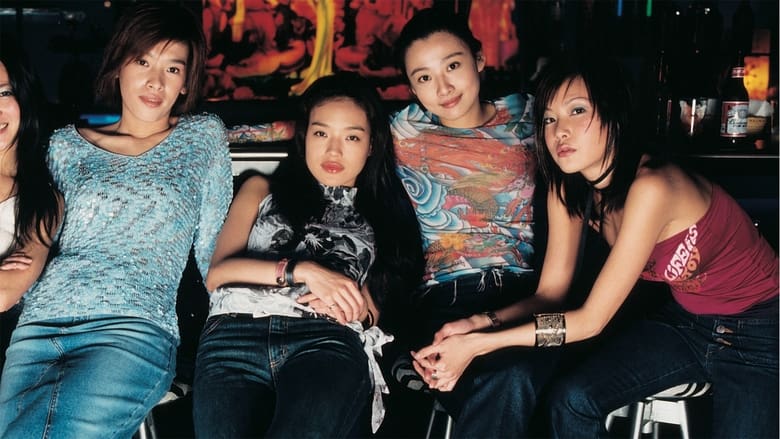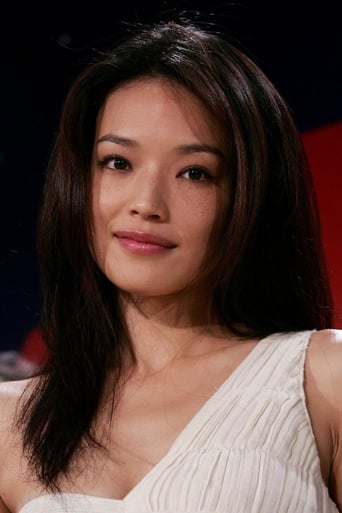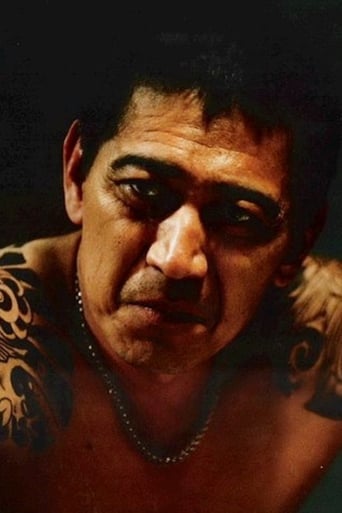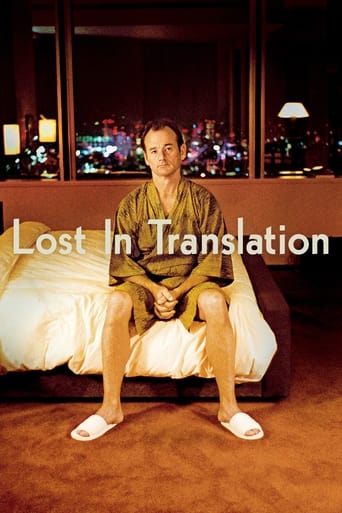Millennium Mambo (2003)
The youthful Vicky is torn between two men, Hao-Hao and Jack. At night she works as a PR person at a night club to support both of them. Hao-Hao keeps vigilance over her all the time, no matter she is on or off the job. He checks her charge accounts, telephone bills, mobile phone records, and even her body odor in an attempt to trace Vicky’s activities. She cannot stand him any longer; she runs away.
Watch Trailer
Free Trial Channels
Cast


Similar titles
Reviews
Well Deserved Praise
Thanks for the memories!
People are voting emotionally.
The movie is wonderful and true, an act of love in all its contradictions and complexity
In a revealing interview included on the DVD, Hou Hsiao Hsien says he wanted "Millennium Mambo" to be a picture of Taipei night life and also "much more," a "multifaceted" film with "multiple points of view" that he would have liked to make six hours long; something post-modern and deconstructed and free-form and improvised, but "modernist" too in some aspects.The actual film isn't so much multifaceted or plot less as it is a portrait in the moment of a few people composed, with a voice-over from ten years later, from the point of view of a pretty middle-class girl called Vicky (The bee-sting-lipped, doe-eyed Qi Shu, who also stars in the present-day chapter of Hou's recent "Three Times") who's stuck in a dysfunctional relationship with a spoiled, also pretty, middle-class boy, the bleached-haired Hao Hao (Chun-hao Tuan), who does drugs and hits on Vicky when she least wants to be hit on and who won't work and, as Vicky's omnipresent voice-over tells us, at one point has stolen his dad's Rolex and pawned it for a lot of money. They live together and hang out at clubs and Vicky works at a bar as a "hostess," a euphemism for a lap dancer who does drugs and drinks with customers and probably has sex with them -- like Liang Ching (Annie Shizuka Inoh) the actress-narrator of Hou's 1995 "Good Men, Good Women." Vicky's bar job gets her involved with an older gangsterish man named Jack (Jack Kao, the actress Liang Ching's dead lover in "Good Men")."Millennium "Mambo" doesn't show us Taipei nightlife in any collective or panoramic sense. It shows us -- a few times -- the hazy corners of a few bright clubs with little crowds of attractive young people playing games and doing drugs and alcohol, and it shows us -- many times -- corners of the apartment where Vicky and Hao Hao live, and bits of a mountain town in Hokkaido, Japan where Vicky goes, invited initially by a couple of boys she meets.Atypically for Hou, the camera moves around quite a bit too in this film, following the people and hugging their faces and bodies -- but also lingering, in his old style, statically observing doorways, walls, light fixtures, or windows with a train going by outside. Many cigarettes are lit, many are smoked. Meth is puffed in a pipe. Hao Hao pouts. Vicky looks sad or angry. The couple break up, but Vicky comes back, or Hao Hao comes after her. It's approach/avoidance: he tells her she's from another planet, but he keeps getting her back. Jack is an oasis for Vicky; but at a crucial time in winter when she goes to Japan, he isn't available, leaving her a key and a cell phone, to wander the streets. She lies in bed. She stares out the window. In a long outtake on the DVD about her Japan sojourn, Jack actually calls her and she's got a cold. In the final cut, he never calls, and she remains healthy. What's left isn't much, though as always for Hou and for many Chinese directors, the visuals are lush and beautifully lit, even if the frames are empty and the plot line, though never absent as his interview promises, goes nowhere. "Millennium Mambo's" reference to the end of the millennium (and perhaps changes in China and Hongkong?) seems, like the six-hour movie and the portrait of Taipei nightlife Hou promises in his interview, to have come to us as little more than the pretty but empty fragments of a vague, lost intention. This is a remake of Antonioni's "L'Avventura," in winter, with young attractive Asians -- and Qi Shu as the new Monica Vitti -- but without the world-weariness or awareness of any sort of fading cultural heritage, and with, instead of Antonioni's haunting white noise, a nagging techno score.
Apparently, the major critics were not willing. Hou Hsiao-hsien is no longer the Flavor of the Month, if the reception given to *Millennium Mambo* is any guide. Hou may no longer be trendy, but his latest film remains a masterpiece -- just another notch on the Master's belt. The critics castigated Hou for wasting our collective time with a movie about a party girl; simultaneously, they praised the juvenile *Kill Bill* to the skies. The critic for the New York Times essentially declared that the artistry in the movie wasn't worth it. The critic was "bored" by the artistry.Meanwhile, those of us who are NOT bored by Hou's artistry may enjoy a feast of it in this edgy, profoundly sad movie. It's set in Taipei in 2001, though the narrating heroine "Vicky" (a gorgeous Shu Qi) speaks to us from 10 years in the "future". The film was actually MADE in 2001, though it didn't reach American shores until earlier this year: hence, an unintended poignancy arises from the fact that we, too, are looking at the film's events from the future -- a jaded, rancorous, post-September 11 future. We feel as despairing as the narrating Vicky sounds, and observe the decadent nightlife depicted here with the same sense of disbelief: were we really that hopeful, were we really that careless, when the new millennium was ushered in? In the first scene, she's walking -- almost dancing, really -- down a long concrete promenade under pale florescent lights, while the wall-to-wall techno music starts thumping ever louder. It's a moment of incandescent happiness in a movie that has few such moments.For the unpleasant details soon assert themselves: she's getting spacey on drugs in a nightclub, returning home to a live-in boyfriend who is abusive, on drugs himself, and erratically but dangerously jealous. One scene, at once nasty and blackly humorous, shows the boyfriend literally sniffing for evidence of adultery on Vicky. The girl occasionally rebels at these indignities and leaves the jerk, but, "as if hypnotized", she always returns whenever he finds her and begs her to come back to him (and he ALWAYS finds her). Hou instinctively understands the self-destructive persona, and he meticulously illustrates Vicky's addictions, whether to cigarettes, booze, "excitement", or degrading sexual relationships. The narration gives us a crucial clue, as well: we learn that this boyfriend of hers convinced her to blow off her final high school exam years back, which basically made her a drop-out and started her on a path toward a wasted life. Hou also understands WHY we're self-destructive; he understands that failure is so much easier.Occasionally, we get a break from the woozy-headed, nauseous neon underworld of Taipei and find ourselves in a snow-covered fantasyland on the Hokkaido island of Japan. Here, while frolicking in a winter wonderland with a casual Japanese boyfriend and his brother, Vicky reverts, with much relief, to childhood. There's a poignant moment when she leaves an imprint of her face in a mound of snow. The camera lingers lovingly on the image of the barely visible imprint -- it's as convenient a symbol as any for the barely visible life of a pretty party girl without talents or prospects, the type of girl one usually sees only fleetingly in movies about more melodramatic subjects like gangsters (and, yes, this movie is about gangsters, too). She's the hanger-on, the pretty ornament on the arm of the criminal. Well, leave it to Hou Hsiao-hsien, the world's greatest working director, to dare to assert that the Vickys of the world not only have a story to tell, but that their stories can be as bleak and nihilistic -- and as artfully rendered -- as any of your King Lears. It goes without saying that the Hou's camera placement is utterly and simply without peer. If anything, *Millennium Mambo* marks an advance in his technique: he takes a little more control, here, and is not quite so blandly omniscient as he can sometimes be. It's hard to write about technicalities, but Hou somehow has managed to find the perfect balance between a focused POV and his more usual reliance on oblique reference points. His cameraman, Mark Lee Ping-Bing (of *In the Mood for Love* fame), gloriously realizes Hou's vision with incredible color: smeary and throbbing neon in Taipei, ethereal and misty white in Japan. Finally, Hou has also convinced me that techno and "Deep House" music can actually approximate art . . . as long as this type of music is paired with, well, a movie by Hou Hsiao-hsien. (See his *Goodbye South, Goodbye* for more evidence.)*Millennium Mambo* is a must-see for the cineaste. 9 stars out of 10.
To my surprise this movie hasn't been reviewed, and from what I gather from other external reviews either they think its empty and boring, or believe that Hou Hsiao-Hsien has gone wrong. Neither is true.Hou has matured his style over the years, and instead of staying with the same historic movies he has moved to the present where he is needed the most. Finally we can see a depiction of the youth's life, which is common to the rest of the modern world, and we see the influence of the west, the decadence of a culture, the fast extinguishing life of a young woman. All seen through an objective heart, not judging or celebrating, but offering comprehension. Very often do we see movies made by the same young people or for commercial needs, when they are more interested in suprising you or make it a music video, and even when Hou uses music a lot he doesn't subordinate his camera or story to it.Maybe it hasn't had a proper release, but anyone with a chance to see it shouldn't miss it. This is a serious and difficult film, and even if you enjoy it for the first time (which is not common), you'll have to repeat the viewings to understand that the most valuable thing in the movie is Time, and Hou is a filmmaker in the true sense, a sculptor in time as Tarkovsky would had called him.
Right, this one gets 7.1? Let me put it this way: if this would have been an American film, it would be somewhere in the upper half of the bottom 100 on these pages. But it's Asian, so hey, it must be good!!!Indeed... What we have here is an example of a film without a story. Well, apparently it's about a young woman. She has a "relationship" with a young man (really?). Why? Who cares? He gets mad, she gets mad, he gets mad, he wants to have sex, she doesn't want to, she walks out, she comes back, etc. And it goes on and on like this for about two hours. (119 minutes!!!!!!) Oh yeah, she also meets two brothers and another guy, and that's about it. Anything happening? Nope. Any insights? Nada. Any emotions? What did you expect? What about some real good acting then? Nah, have to disappoint you. Hey, but don't you think the techno music is great? Yes, it suits the film very well, because it also goes on and on and on... I could write a review too that goes on and on. Instead I'm thinking of writing a letter of complaint to the makers of this film. I thought the first film to receive a 1/10 from me on the IMDB would have been an old monster movie, but at least these films provide some laughs from time to time. This one doesn't, except for a hysterical one when you realize you have spend your money on watching this. As I said: 1/10. (why can't we give 0/10 anyway?)

